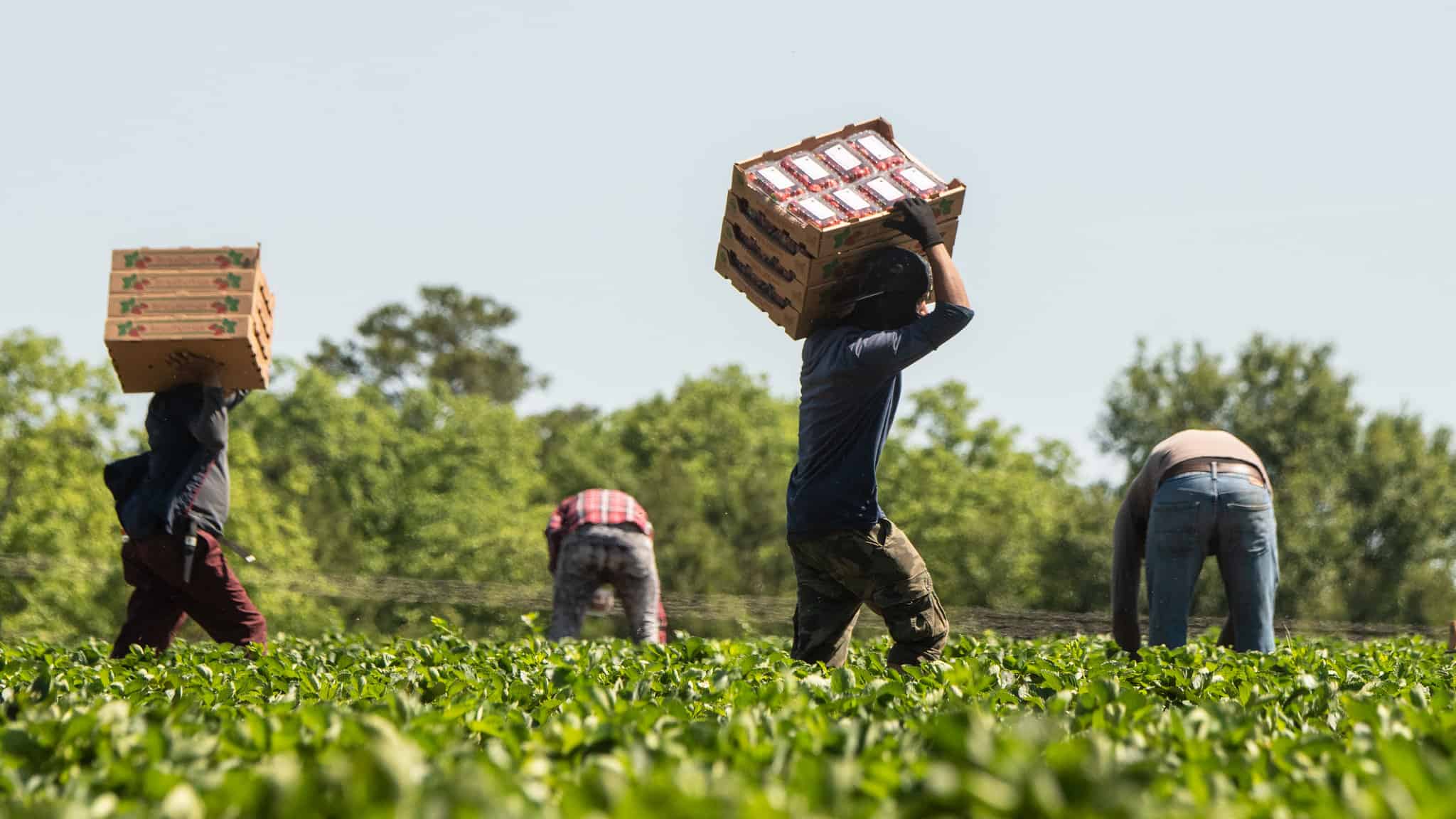
Jon Levitan is a student at Harvard Law School and a member of the Labor and Employment Lab.
The Supreme Court heard oral arguments yesterday in Cedar Point Nursery v. Hassid, a challenge to a California regulation that allows union organizers to access the property of agriculture businesses to speak with workers during non-work hours on up to 120 days per year. The challenge to the nearly-fifty-year-old regulation was brought under the Fifth Amendment: the employers say that, by allowing organizers to come onto their property and speak with workers, the government is taking the employers’ property without compensating them. Marina Multhaup wrote a piece last week on the racism and exclusion at the heart of the case. The court, with a 6-3 conservative majority, appeared likely to stay true to form and rule against the unions. The justices did appear to have some trouble with coming up with a specific test that would deliver the employers a win without completely rewriting the Fifth Amendment (Andrew Strom wrote here that it would be impossible for the court to do so).
Justice Kavanaugh presented an alternative to creating a new kind of takings test under the Fifth Amendment: applying existing labor law doctrine to this case. Kavanaugh said the employers would likely win under NLRB v. Babcock & Wilcox and Lechmere v. NLRB, which together say that union organizers are almost always barred from entering employer property without permission during an organizing drive unless the workers there are otherwise unreachable. It’s not clear exactly how Kavanaugh would apply cases interpreting the NLRA to a case involving farmworkers (who are explicitly excluded from the NLRA) and a state regulation without invoking the constitutionality of the regulation. Amy Howe, writing for SCOTUSblog, questioned whether there were “at least four [other] justices who agreed with Kavanaugh,” but wrote “his questions might provide a simpler way out of a complicated case.”
The union election at an Amazon warehouse in Bessemer, Alabama is nearing its climax (ballots are due March 29). Labor reporter Kim Kelly has an extensive feature in Vox on the biblical undertones of the organizing drive striking a tone in deeply religious Bessemer. Kelly describes the struggle against Amazon as a “David and Goliath story” for the workers and organizers who have fought to unionize one of the most powerful companies on earth. One of the lead organizers for the Retail, Wholesale and Department Store Union (RWDSU) is Michael Foster, a shop steward at a nearby poultry plant who has used his faith to connect and pray with Amazon workers throughout the organizing drive. “I believe that’s just what God has asked me to do. That’s my mission,” Foster said. With the results coming so soon, Jennifer Bates, a prominent pro-union worker at the Bessemer warehouse, said that she is sanguine about the results: “if it is meant to be, God is gonna make sure it comes to pass — and if it doesn’t, then there was something in there that we should have learned. We are supposed to learn out of it.”
Amazon is pulling all the stops to stop the first successful organizing drive at one of its warehouses, including hiring two separate anti-union consulting firms and the union-avoidance specialist law firm Morgan & Lewis. From across the pond, we have an example of why Amazon is so desperate trying to stop the stateside organizing drive: Italian Amazon workers have gone on a 24-hour nationwide strike to improve a variety of working conditions including shifts, pace of work, more stability for temporary workers, and COVID-pay. The general secretary of one of the Italian unions organizing the strike told CNBC that “Amazon has registered a huge increase in turnover and profits thanks to the pandemic, and now must talk with us to give its employee[s] what they are waiting for” (emphasis added). In this country, Amazon is never forced to speak with its employees. But that may not be the case next week, if the RWDSU wins in Alabama.






Daily News & Commentary
Start your day with our roundup of the latest labor developments. See all
July 3
California compromises with unions on housing; 11th Circuit rules against transgender teacher; Harvard removes hundreds from grad student union.
July 2
Block, Nanda, and Nayak argue that the NLRA is under attack, harming democracy; the EEOC files a motion to dismiss a lawsuit brought by former EEOC Commissioner Jocelyn Samuels; and SEIU Local 1000 strikes an agreement with the State of California to delay the state's return-to-office executive order for state workers.
July 1
In today’s news and commentary, the Department of Labor proposes to roll back minimum wage and overtime protections for home care workers, a federal judge dismissed a lawsuit by public defenders over a union’s Gaza statements, and Philadelphia’s largest municipal union is on strike for first time in nearly 40 years. On Monday, the U.S. […]
June 30
Antidiscrimination scholars question McDonnell Douglas, George Washington University Hospital bargained in bad faith, and NY regulators defend LPA dispensary law.
June 29
In today’s news and commentary, Trump v. CASA restricts nationwide injunctions, a preliminary injunction continues to stop DOL from shutting down Job Corps, and the minimum wage is set to rise in multiple cities and states. On Friday, the Supreme Court held in Trump v. CASA that universal injunctions “likely exceed the equitable authority that […]
June 27
Labor's role in Zohran Mamdani's victory; DHS funding amendment aims to expand guest worker programs; COSELL submission deadline rapidly approaching